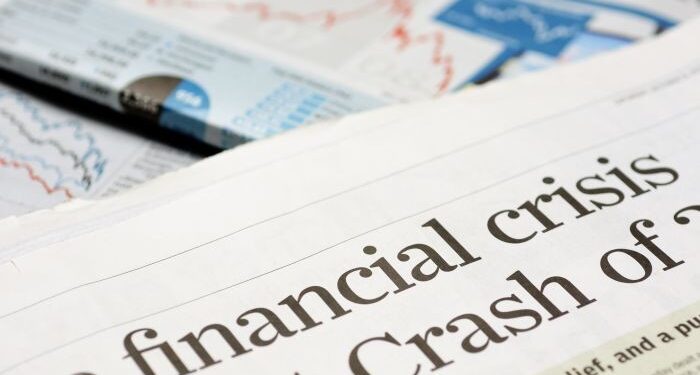1. Trump’s Tariffs May Be Reduced, but Their Impact Will Be Felt in the UK and Beyond
President Donald Trump’s recent announcement of sweeping “liberation day” tariffs, including a 10% baseline and 25% on specific goods like cars, steel, and aluminum, has led to significant global economic uncertainty. China retaliated with 84% tariffs, prompting further escalation from Trump to 125%-145%, and another 125% response from China. These trade tensions have weakened the U.S. dollar, increased borrowing costs, and damaged investor trust in Trump’s judgment. While the UK experienced a surprising 0.5% GDP rebound in February, the heightened tariff uncertainty threatens its recovery. However, the UK could benefit from diverted Chinese and other exports, potentially lowering consumer prices and inflation, aiding future interest rate cuts. Nonetheless, prolonged tension between the U.S. and China risks a global trade slowdown or recession. Read article
2. There’s No Easy Escape from the US Bubble Economy
The United States is currently grappling with a fragile economy characterized by inflated asset prices and high debt levels. This analysis explores the challenges of transitioning away from a bubble economy and the potential risks involved. The reliance on financial activity and debt, supported by foreign investors, has created a precarious economic situation. Efforts to deflate the bubble could lead to widespread economic pain. Read article
3. US Bank Profits Rise, but Executives Raise More Tariff Alarms
Despite reporting strong first-quarter profits, U.S. bank executives are expressing concerns about the economic impact of tariffs. The escalating trade tensions, particularly with China, could hinder growth and affect financial markets. Bank leaders warn that the uncertainty surrounding trade policies may lead to increased market volatility and reduced investment. Read article
4. Brazil’s Stagnant Economy Is the Poster Child for High Tariffs
Brazil’s high tariff policies have led to increased consumer costs and inefficiencies in the industrial sector. This examination highlights how protectionist measures can stifle economic growth and serves as a cautionary tale for other economies considering similar approaches. The article delves into the consequences of Brazil’s trade policies and their broader implications. Read article
5. The Times View on Labour Prioritising the Economy: Grow, Baby, Grow
An editorial discussing the UK Labour Party’s focus on economic growth, including plans to reform legal processes to expedite infrastructure projects and stimulate the economy. The piece emphasizes the importance of prioritizing growth and the potential benefits of streamlined development initiatives. Read article
newshub



Recent Comments